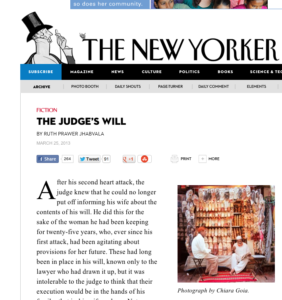 Don’t forget: at 1PM (EST) today (Wednesday) I’m hosting a webinar on how to write, revise and release a story all in one week, with DIYMFA’s Gabriela Pereira. And we have a special announcement. Register Now
Don’t forget: at 1PM (EST) today (Wednesday) I’m hosting a webinar on how to write, revise and release a story all in one week, with DIYMFA’s Gabriela Pereira. And we have a special announcement. Register Now
Last week Neil Gaiman’s new novel The Ocean At The End of the Lane came out.
I like his books. But I LOVE his online journal. So on reading the book, it was clear straight away, that he was mining his personal memories: both as an adult attending his father’s funeral (which he did in reality a few years ago, and blogged about) and as a child growing up (one county over from where I would grow up during the following decade).
I’m reading the book slowly, but so far here’s what I see: the details. The details — of what the child sees, where the adult goes — are startlingly clear and appropriate to each voice. The adult goes for a drive to avoid the funeral hooplah, and sees the world as it is and how it has changed. The child looks unflinchingly at a dead body until he is hustled away by the grown ups. But he notes, disgruntled, that the body is draped in a blanket from his own bedroom. He takes in details of the body looked unlike the person as they had been, alive. He measures money in how many four-for-a-penny Blackjacks and Fruit Salads it can buy him (the pervasive, child-accessible sweeties/candies of Mr. Gaiman’s and my childhoods!).
The Prompt
Write a story based on one strong image from your childhood — or at least a decade ago
It doesn’t need to be anything as shocking as discovering a dead body. Just take a vivid memory-image and weave a story around it. Have your characters recall details that you recall. Have them feel the way you felt.
For instance, I remember being allowed (encouraged?) to visit an elderly neighbour of ours when I was very young. I went round one day and saw, in a window above her living room window, a stranger, cleaning her windows from the inside. This person was wearing a white, sleeveless top, hair slicked back, cheeks red. I can remember that the house was attached to other houses on either side, built of brick. The windows were sash windows. The door was up a step from the long path that ran between two strips of lawn. There was a garden gate made of wood with one of those metal latches you have to lift to open it. I still remember the physical sensations I felt when I said…
I *know* this character. I know the mistake she’s about to make and her reaction to it. Now, can I put that into a story where it turns out that the person upstairs is not who Mrs McKay thinks it is? Can I have my character go on to make a similar but bigger mistake? Can I have her triumph over her personality flaws, or will she be defeated by them?
What memory will you write about?





